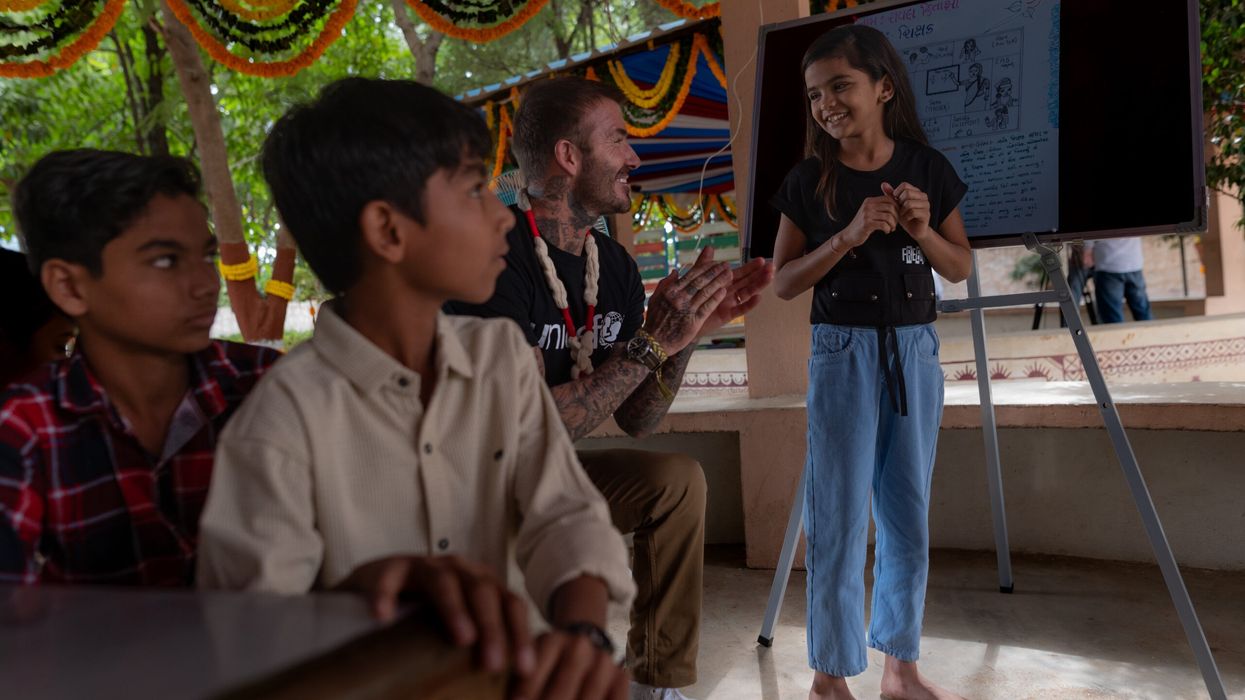DAVID BECKHAM, who was in India last week as a global ambassador for the United Nations children’s charity Unicef, has expressed confidence that positive social change is taking place in India, especially as young girls are demanding greater gender equality.
The 48-year-old former football star met children at schools in Gujarat and also talked to young entrepreneurs at a local university.
Beckham revealed he was especially impressed with a conversation he had with a nine-year-old girl who had resisted family pressure to be married off at an early age.
“I asked her about her situation at her home with her family,” he said. “Going into an early marriage was a discussion that had already happened. She was able to stand up to her father and say, ‘No, this is what I want, daddy, this is what I want for my future. I want to complete my education.’ And that’s a brave decision for a nine-year-old girl to stand up against her father. And, luckily, her father listened – not every father does listen.
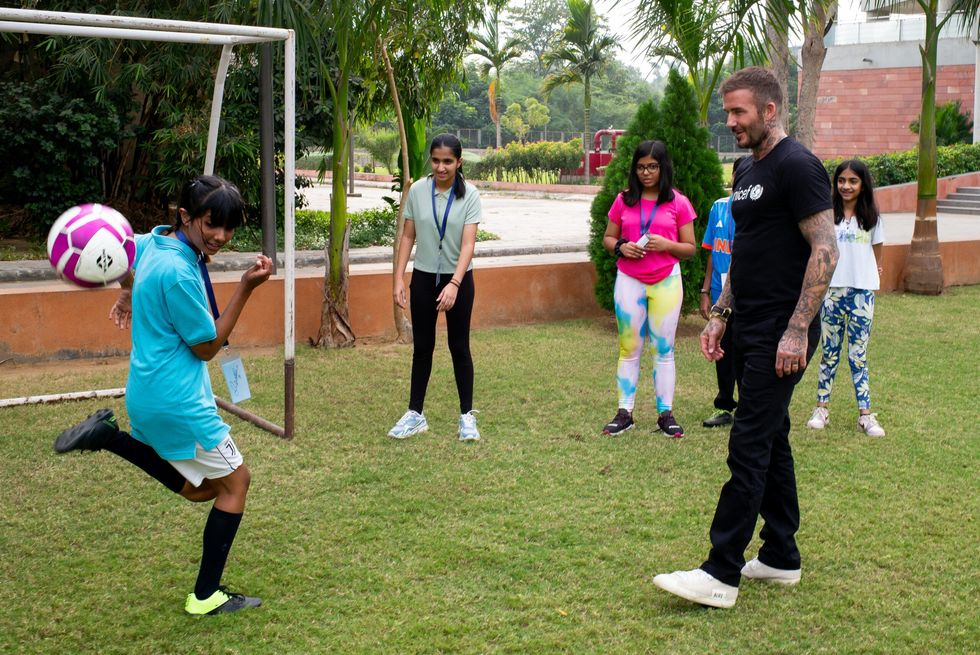
“So there’s one girl in a community that is making a change that then affects other people in the community. Then, with her father’s generous mindset of believing in his daughter, he can go to other fathers and say, ‘Okay, this is what’s going to happen. This is what your daughter’s future is going to be.’”
Beckham emphasised: “The population of children in India is the biggest – 460 million children. One in every five children in the world is in India. And we know when India progresses, the whole world progresses with them.”
On the lighter side, Beckham attended the India-New Zealand cricket World Cup match played in Mumbai.
He was also feted by the Bollywood fraternity at parties hosted by superstar Shah Rukh Khan as well as the actress Sonam Kapoor and her businessman husband, Anand Ahuja, who usually live in London. Those who turned up to take selfies with the football legend included Malaika Arora, Arjun Kapoor, Sanjay Kapoor, Shanaya Kapoor, Maheep Kapoor, Karisma Kapoor, Shahid Kapoor with wife Mira Rajput, Ritesh Sidhwani, Isha Ambani and her sister-in-law Shloka Ambani, and Farhan Akhtar with his wife Shibani Akhtar. Aaditya Thackeray was also seen arriving at the party. Amid a whirl of TV interviews to explain his work as Unicef ambassador since 2015, Beckham found time for a conversation with Sara Ali Khan at the Meta office in Mumbai.
For a man who has travelled the world, this was Beckham’s first trip to India. And he came across as both eloquent and sincere when talking about his work with children all over the world.
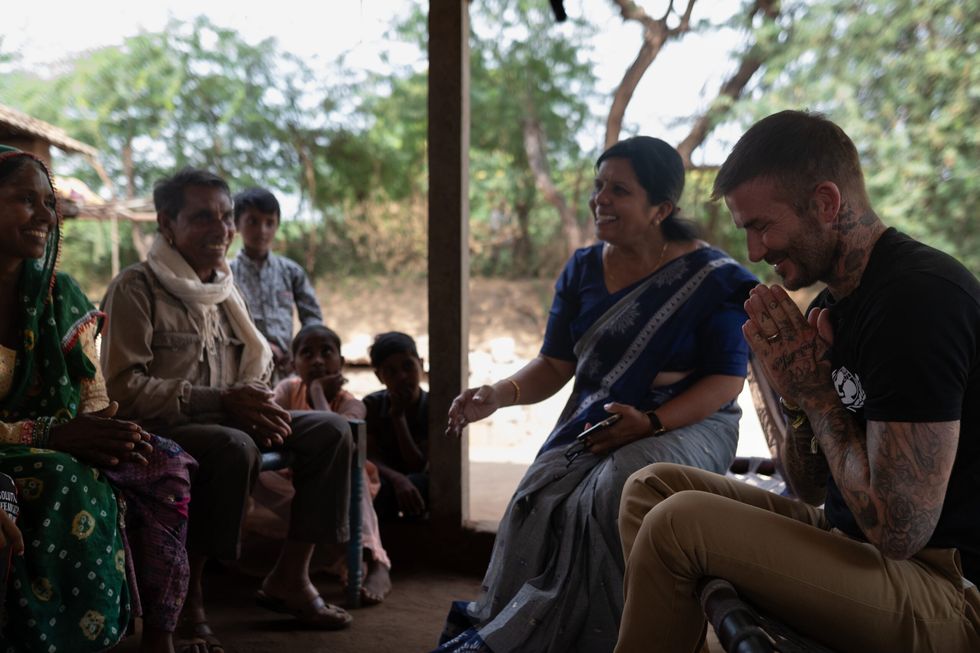
He began graciously by telling one interviewer: “Thank you for having me in this beautiful country. I’ve wanted to come to India for a long, long time. For some reason, I’ve just never been able to make it happen. This is my first time and it’s been an incredible experience so far. Everybody has welcomed me with open arms. Obviously, there are a lot of fans here that have followed my career over the years. It’s a real pleasure to be here. And, obviously to be here, at an important time as well, over Diwali and the new year, and also the cricket World Cup, it’s a good time to come.”
He added, “In my role as global ambassador for Unicef, the one thing that I’ve always enjoyed is being in the field, being there with the kids, seeing their situations, seeing the progression that’s happened, and being part of their lives for that time. (In India) I’ve seen and met so many great young children – and a lot of young girls that are striving for change. That tells me that something great and good and progression is happening here in India, but there’s still a lot to be done. For me, it’s the first time I’ve been back in the field since Covid.”
He spoke in some detail about his two days in Gujarat. “The first part of my trip was to meet some young children at this incredible small school. Their confidence was incredible. Some of the kids were six years old, eight years old, 10 years old, and they stood up with this confidence. They talked to me about what their rights should be, what their rights are, and what changes they want to make. Some were boys, majority were girls championing for change, for equal rights.”
Beckham said, “I then went to Gujarat University, where I met young entrepreneurs and innovators.
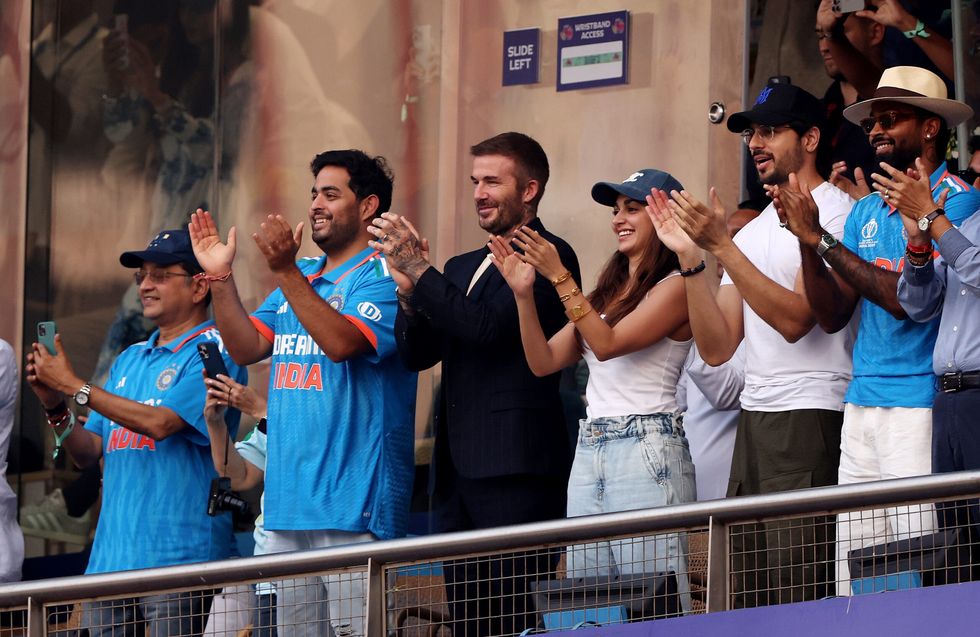
“It was mind-blowing what they were coming up with. One young boy came up with a device that reminds his grandparents to take their medication. I came away from that university and thought, these young kids, mostly young girls, are going to be the leaders and innovators in the future of this country.”
He also witnessed the reality of rural India. “I went to a couple of different villages, where I met some families that were so inspiring. I met two different families. (In one) the grandparents had taken over the care of these young children who had either been orphaned or had a difficult situation. There were two boys and two girls.
“Then in the other family, there were four girls. And I said to the father that I have just one girl. I would love lots of girls in my family. I loved what he said to me, which is why I feel that there has been progression. When I said to him, ‘What is the future for your daughters?’ his mindset was different to what I expected him to say. He was in his late 50s. He turned around and said, ‘I want them to finish their education. Then they can decide if they get married and decide their future.’
“I’ve always said I have three sons and one daughter. I want my daughter to have the same opportunities my sons have.”
Beckham spoke of the power of football, cricket and sport in general in bringing about social change. “I’ve always said that sport is one of the most powerful tools of change. And it’s the same with cricket here. It’s such an important role for sportsmen and sportswomen to have that opportunity to have a platform where they can speak out and be part of that change.”
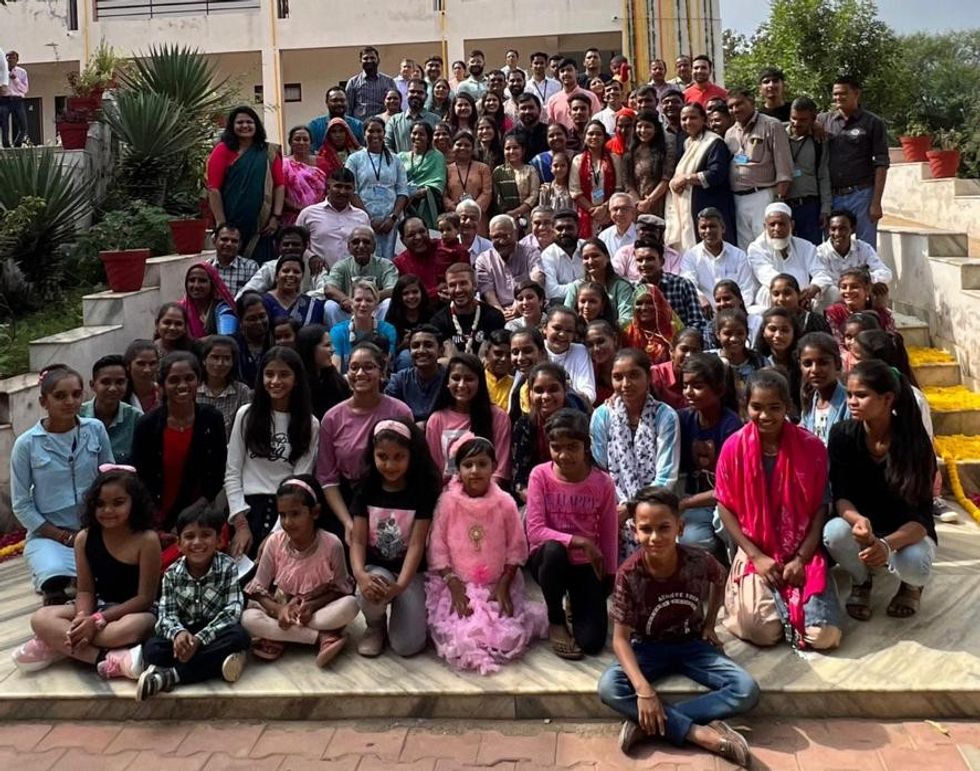
Asked about his own children and whether any of them could “Bend it like Beckham” (the title of Gurinder Chadha’s hit film), he smiled and said: “Actually, they’re all pretty good at playing football and playing sports. But Romeo is the only one at the moment who’s part of a team. Brooklyn likes photography or cooking. My daughter is obviously the boss and my other son Cruz loves music. So, we’ll see.”
As for returning to India, he replied: “I can’t wait to come back”.
